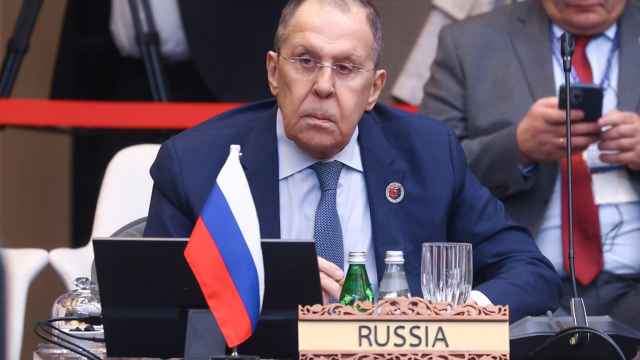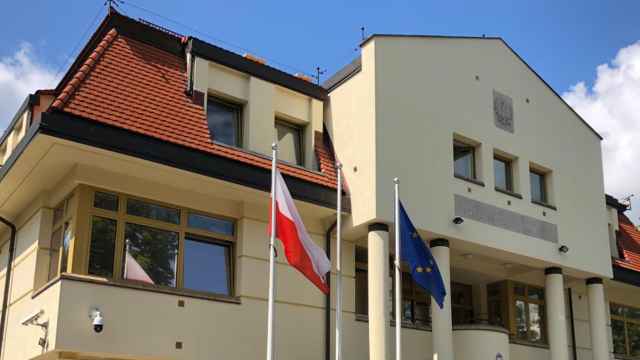Distinguished opposition leader Mikhail Kasyanov excoriated the government in a documentary aired Wednesday night on state-controlled Channel One.
But the overall context of the film appeared to leave little doubt that nothing would ever make him happy.
Giving a voice to Prime Minister Vladimir Putin’s critics on the country’s most popular television channel is unusual, but the show made Kasyanov and others look like pesky mosquitoes.
“I don’t regret that they showed me, but it’s not the film I agreed to be in,” Kasyanov said through his spokeswoman, Yelena Dikun.
Titled “Bridge Over an Abyss,” the documentary looked over 20 years of post-Soviet ups and downs. It credits Putin, who is seeking a third presidential term, for the resurgent economy.
Offering footage of grinning oligarchs, coal miners banging their hardhats on the ground during a strike and a cartoonish President Boris Yeltsin dancing disjointedly while steering a ship named “Russia,” the film features a voiceover asserting that Putin prevented the country from disintegrating, presided over economic growth and improved the quality of life.
Dikun said a film studio approached Kasyanov in the spring asking for an interview that would be part of a film on how the country should develop in the 21st century. The finished product was not what he expected, she said. “This is absolutely pro-Putin propaganda,” Dikun said. “It’s hosanna to Putin.”
In the documentary, Kasyanov described Putin’s rule as repressive and said the authorities tell people: “Everybody shut up, everybody grovel, everybody to your knees.”
“This will get us in trouble,” he said. “There will be a social upheaval very soon, and this government will be swept away.”
Other opposition figures in the film included self-exiled businessman Boris Berezovsky and political leader Vladimir Ryzhkov. They didn’t respond to requests for comment Thursday. Putin spokesman Dmitry Peskov said he liked the film.
A Message from The Moscow Times:
Dear readers,
We are facing unprecedented challenges. Russia's Prosecutor General's Office has designated The Moscow Times as an "undesirable" organization, criminalizing our work and putting our staff at risk of prosecution. This follows our earlier unjust labeling as a "foreign agent."
These actions are direct attempts to silence independent journalism in Russia. The authorities claim our work "discredits the decisions of the Russian leadership." We see things differently: we strive to provide accurate, unbiased reporting on Russia.
We, the journalists of The Moscow Times, refuse to be silenced. But to continue our work, we need your help.
Your support, no matter how small, makes a world of difference. If you can, please support us monthly starting from just $2. It's quick to set up, and every contribution makes a significant impact.
By supporting The Moscow Times, you're defending open, independent journalism in the face of repression. Thank you for standing with us.
Remind me later.





